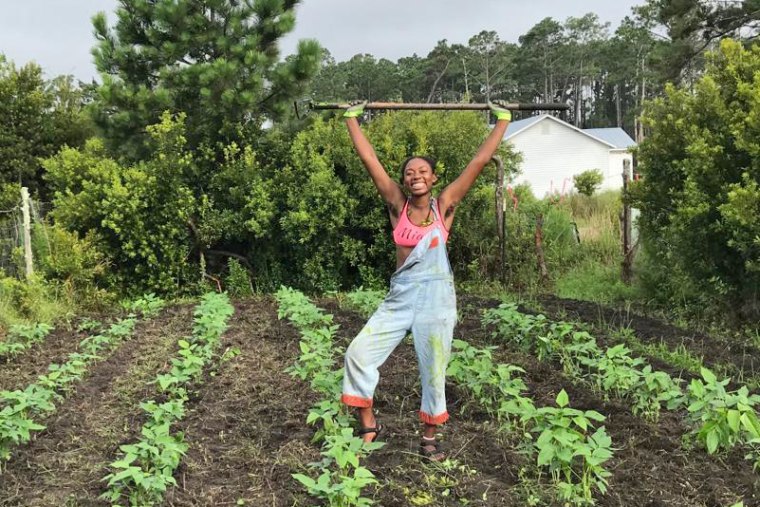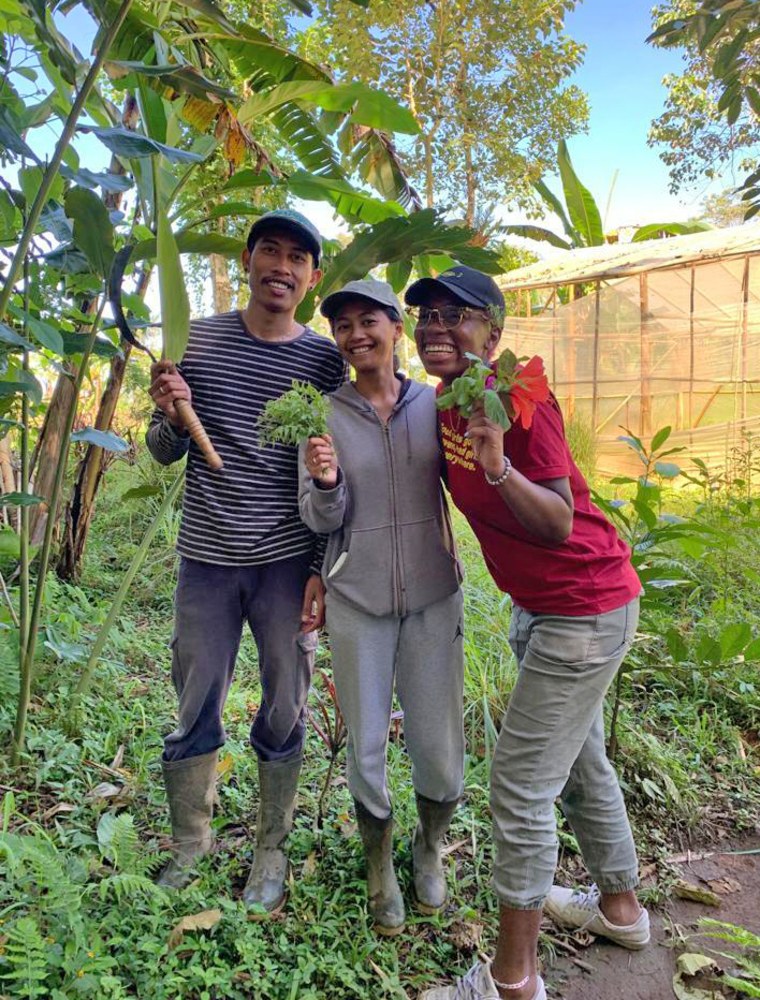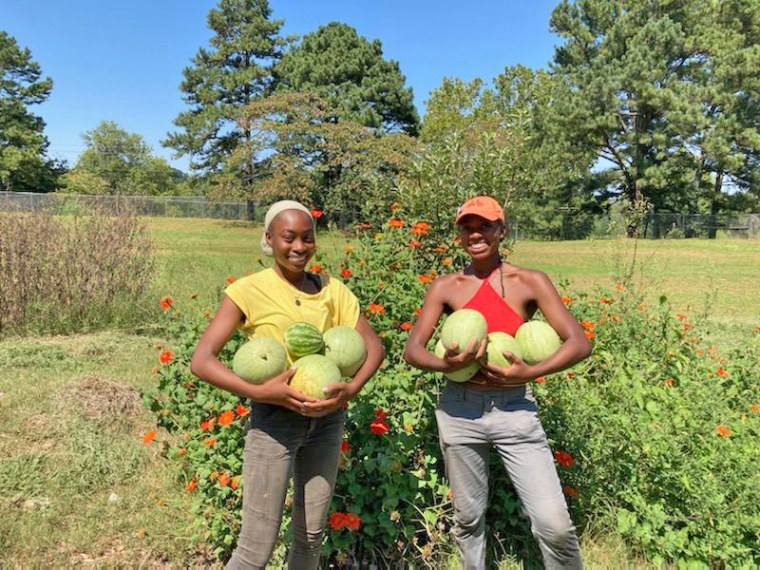[ad_1]
Eva Dickerson has spent her life thinking about food. Not just about what to eat, but more specifically what it means to have access to food, to groceries and space to grow crops.
“Food access might ask why there isn’t a grocery store in someone’s neighborhood,” Dickerson, 26, said, “but food apartheid might ask who planned neighborhoods so that some people have groceries in their neighborhoods and some people don’t.”

These questions form the basis of Dickerson’s work as a farmer and activist. She’s currently living in Thailand as a fellow for Princeton in Asia and spends her time teaching children how to farm as she tends to community gardens and harvests produce for her local community. She describes her mission as working toward “food sovereignty” and against “food apartheid.”

The term “’food access’ doesn’t really direct us toward understanding complex systems of power like colonialism, white supremacy, patriarchy, capitalism,” Dickerson said. “’Food sovereignty,’ however, does, and means having every person on earth be able to access all parts of the food system in a way that is self-determined and honors them as human beings without infringing on and impeding someone else’s access to that part of the food system.
“‘Food apartheid’ is just a more precise way to describe the ways that systems of oppression manifest in our food system so that your relation to power literally determines your ability to feed yourself or get a good job or practice the foodways that your culture supports.”
Well before Dickerson headed to Thailand, she learned about the injustices many Black people in the U.S. face and became part of Atlanta’s activist community.
“There are moments across my adolescence that are punctuated by state violence, specifically state violence against Black people. Particularly, I’m thinking about Sandra Bland, Mike Brown, Natasha McKenna and Korryn Gaines,” Dickerson said.
Dickerson became inspired to take on this work while a student at Spelman College.
“When I learned that my campus was contracting with Aramark, which is a large national food service company, I was really disturbed,” she said, referring to Aramark’s history of using prison labor to prepare and package food.

Dickerson said protesting her school’s food sourcing led her to create her campus’s first fresh food market. She continued learning from Black and indigenous farmers in the Atlanta area who teach farming practices as a form of activism. These days she’s supporting her fellow activists in Atlanta who are fighting against a large police training facility that’s being constructed, in part, on an old prison farm, “essentially a labor camp that prisoners used to get sent to to grow food under horrendous, terrible conditions.”
Even through adversity, Black communities have passed along ancestral knowledge of agriculture in America for centuries.
Black people make up about 14% of the U.S. population but are three times more likely to face hunger than white people, according to the Agriculture Department.
Another study found that one in three Black U.S. households live in food deserts, meaning they have little to no access to grocery stores with fresh produce.

Food apartheid affects millions of people all over the world, but Dickerson said there were several factors that made hunger for Black people in America uniquely frustrating.
This dense knowledge of agriculture among African Americans started on the continent of Africa. Centuries of crop and rice cultivation made its way to the Americas via the trans-Atlantic slave trade routes. Then, enslaved Africans created the blueprint of American cuisine by growing food to feed those who lived on plantations, while finding creative ways to feed themselves from the scraps for more than 200 years.
Black Americans continued working as stewards of the land beyond emancipation, the Jim Crow era and the civil rights movement. But systemic racism did not allow this labor or knowledge to turn into generational wealth or food sovereignty for African Americans.
Today, Black farmers currently make up less than 1% of rural land owners, but Dickerson says their mark on history is still felt — and the fight for food sovereignty advances that legacy.
“I have a vision of the future,” she said, “where the children I’m helping to raise, and their children, have access to clean water, clean food; know the truth and extent of their history and know how we got there today. But also feel empowered to carry on the legacy of the people who came before them to take care of each other and their planet. We will plant forests and farms and trees and so much food, and we’re going to win.”
[ad_2]
Source link
